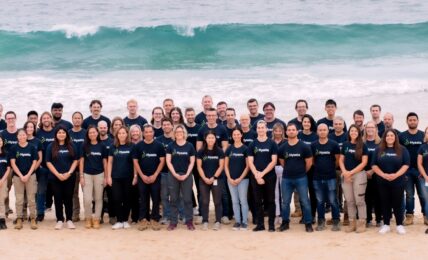Amazon announced that it is funding a project researching the potential of seaweed to capture and sequester carbon.
The project, North Sea Farm 1, will be the first-ever commercial-scale seaweed farm located between offshore wind turbines, will be based in a wind farm off the coast of the Netherlands, and led by NGO North Sea Farmers.
According to Amazon and North Sea Farmers, the European seaweed farming sector has the potential to reduce CO2 by millions of tonnes a year by 2040, if expanded to occupy the entire space occupied by wind farms. Benefits to utilizing seaweed for carbon capture include the potential to enhance biodiversity, and the ability to produce seaweed without using any land or freshwater. The sector could also generate significant employment opportunities.
Eef Brouwers, Manager of Farming and Technology at North Sea Farmers, said:
“Potentially, up to 85,000 full-time jobs could be created in the European seaweed sector by replicating North Sea Farm 1 across the North Sea, re-purposing the space amongst wind farms. These jobs would not only be in the farming process but also in the production and sales of seaweed-based products.”
Amazon said that it will grant €1.5 million to create the seaweed farm and support a year of research into carbon reduction through seaweed farming. The grant will enable the construction of a 10-hectare seaweed farm, and support analysis to improve the farm’s production capabilities.
The funding for the grant will come from Amazon’s Right Now Climate Fund, a $100 million fund for nature-based solutions focused on restoring and conserving forests, wetlands, and grasslands around the world.
Zak Watts, Director EU Sustainability at Amazon, said:
“Seaweed could be a key tool in removing carbon dioxide from the atmosphere, yet it’s currently farmed at a relatively small scale in Europe. We’re delighted to fund this project to help us reach a greater understanding of its ability to help fight climate change.”
The post Amazon Backs Project to Farm Seaweed to Capture and Store Carbon appeared first on ESG Today.



